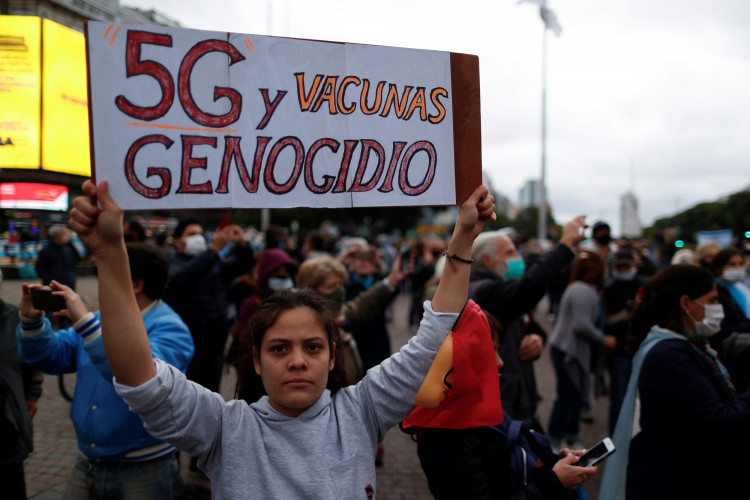Let's get one thing straight: 5G didn't cause the coronavirus pandemic. But has that fact stopped people from protesting against the next-gen mobile network? No.
Many people are pretty convinced it's 5G that's causing this global malady, and while it's easy to dismiss that notion with an insult or two, there's actually an explanation why people fall for such conspiracy theories.
Engadget had a conversation with Omer van den Bergh, a tenured professor of Health and Psychology at the University of Leuven in Belgium to help us understand the psychology behind why people think 5G makes them sick.
Prof. Van den Bergh has researched extensively about Idiopathic Environmental Intolerance, a term used to describe genuine physical symptoms that materialize when some people encounter chemical substances, electromagnetic fields, and even vibroacoustic sources like windmills. These factors have nothing to do with the symptoms as proven by tests, but the mere belief that they cause illnesses is enough to cause physical reactions, such as an unexplainable rash, difficulty in breathing, and phantom vibrations.
These unexplainable symptoms are what make up Idiopathic Environmental Intolerance, also called environmental illness or multiple chemical sensitivities (MCS). People experience these symptoms that cannot be attributed to a diagnosed medical issue.
"There is a group of people that tends to attribute these symptoms then to environmental causes, and these are typically people who have what we call modern health worries," Prof. Van den Bergh said.
People with environmental illness have "modern health worries" instead of the usual sensitivities to things like household cleaners and perfumes, and these worries are increasingly attributing symptoms to electromagnetic radiation. This is where the natural alignment with 5G conspiracy theorists starts to emerge.
In the search for a cause, people can latch on to any possible answer in the hopes of finding relief.
Experts have repeatedly said that 5G radiation is not detrimental to health, but some conspiracy theories even go as far as blaming the technology for spreading the virus, which is not true. But that didn't stop some people from protesting and lighting up cell towers, and even harassing mobile network engineers. It didn't take long for the 5G-coronavirus hoax to become viral.
Invalidating conspiracy theorists and laughing to their faces sure is fun, but Prof. Van den Bergh believes it's not helpful to people experience symptoms. What's helpful is to educate sufferers so they can find relief. Ultimately, he wants those experiencing such symptoms to know that he takes them very seriously.
"We are currently developing treatment protocols," Prof. Van den Bergh said.






